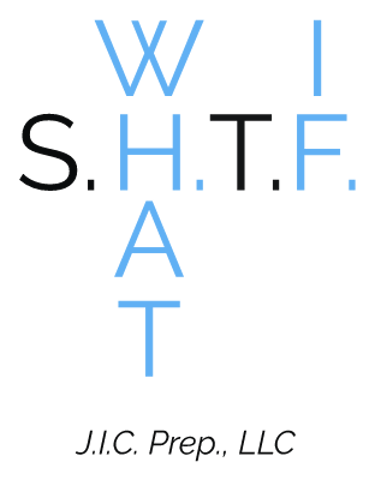Discipline(s) Description
For the "Inquisitive Novice"
Lew
8/13/20234 min read


A "definition" hardly does justice for this Sites disciplines, and therefore, I will simply try to introduce inquisitive novice's to a very brief description of "Concepts and Applications". Although there are ALWAYS exceptions to rules, a general perception looks something like this:
Preppers - traditionally try to forecast an unfortunate but, conceivable event and, prepare themselves accordingly with resources. Somewhat of a "controllable variable" in an "uncontrollable scenario", with the targeted outcome simply being...surviving the scenario. Examples of an uncontrollable scenario would be anything from a localized event such as a tornado or an earthquake, to an event on a much larger scale like World War 3 or an Apocalypse, and just about anything in between. A recent example of what most Preppers had been intuitively preparing for, was the worldwide Pandemic of 2020. Although some citizens did not subscribe to the information being shared with the public from governments, via media outlets, the widespread panic that we all witnessed in our own neighborhoods was certainly undeniable. Most Preppers did not need to rush out to stock up on food, water, nor propane (nor toilet paper for that matter), simply because they had essential items already stocked in caches. Medical Supplies, Sheltering Options, Fuel Sources, Hydration, Caloric Intake, etc., were all categories that Preppers had instinctively considered for years prior to that event occurring.If the Sh*t Hits The Fan (S.H.T.F.), some Preppers anticipate implementing a "compound" strategy, essentially holing up at one location like, a house or a barn, with a large cache of supplies stored inside. Others anticipate implementing a "nomadic" strategy, essentially keeping mobile and traveling lite, with small caches stored at predetermined strategic locations along their planned path of travel. Most Preppers have a "Plan A" and a "Plan B" and, the vast majority of "Plan B's" incorporate both "compound" AND "nomadic" strategies


to some varying degree and therefore, you'll find that almost all Preppers implement urban AND wilderness oriented skill sets into their arsenal of resources. Regardless of which strategy makes the most sense for any particular Prepper, the overall concept is to know what supplies are needed to survive, actively secure and store them, as well as thoroughly contemplate what approach works best for them, just in case the "What If" hits the fan!!!
Survivalists - traditionally try to incorporate modern, as well as primitive, wilderness skill sets into their discipline. They also have a pre planed "Kit", with individual items in it, that have a potential of serving multiple purposes. This "Kit" is anticipated to be deployed during an emergency situation where basic NEEDS must be maintained, in an effort to survive. These individual items in the "Kit" are well thought out and, organized in a fashion to maximize efficiency. Time, Hydration, and Calories are often wasted in a survival situation when someone is disorganized. Resource Management is a concept that is always on their minds.
An example of an item included in their "Kit" will almost certainly be a knife, with a 90 degree spine on it. In this example, the Management of this Resource (the knife) would be to use the spine to complete tasks whenever possible, therefore preserving the cutting edge of the blade. The multiple purpose applications of this resource (the knife) could be; processing fire wood, cutting cordage, carving "triggers" for Spring Snares, or skinning wild game for consumption.
Although most Survivalists begin training in the geographical region where they live (due to the close proximity), some will eventually venture to other regions to advance their knowledge and experience. The mentality behind this approach is that, if a person were to only train in an arid/desert type of an environment (this is merely an example), they may not have the skills to survive a "What If" in a humid/swampland type of an emergency.


Bushcrafters - traditionally try to practice a variety of skill sets in a controlled environment, with somewhat of a "minimalist" approach. These skill sets are often times reminiscent of the Frontier era but, also include Indigenous applications, and occasionally even Paleo techniques. Although Bushcrafters can , and sometimes do, hone their skills while on solo outings, they are more commonly enjoy in a social (though remote) setting. In addition to practicing primitive skills, Bushcrafters also interject Crafts into their routine, like making bowls from sections of small logs and, chairs and/or tables from saplings that they harvest from the surrounding landscape.
Most Bushcrafters implement small "Kits" into their inventory of supplies that they take with them on their outings, As an example, a "Fire Kit" may be a leather pouch, holding a piece of flint, a section of High Carbon Steel, and a tin full of charred material. A "Fire Kit" could also contain tinder materials like dried grass or Cedar (Juniper) bark shavings, These "Kits" help maintain a level of organization, which in turn, helps to keep the individual efficient.
Seasoned Bushcrafters possess the ability to "see what Mother Nature has to offer" them. They recognize resources that someone outside of this discipline may not see the full benefits from. Having these types of skill sets makes a person less reliant on modern, man made resources and, gives them an advantage in a wilderness setting if a "What If" happens.


In Summary:
As you can see, there are defined differences between each discipline, however, they also share many things in common, like organization - "Organization is a key to efficiency and, efficiency is a key to survivability". On this Site, we will explore, explain, and respectfully debate resources, "Kits", concepts, approaches, and applications of each discipline. In an ideal world, each of us would be able to continue to benefit from the assets that ALL of these disciplines offer. We'll have better skill sets, be better organized, be more efficient, be better equipped, and be better prepared for a "What If"! Please join us.
